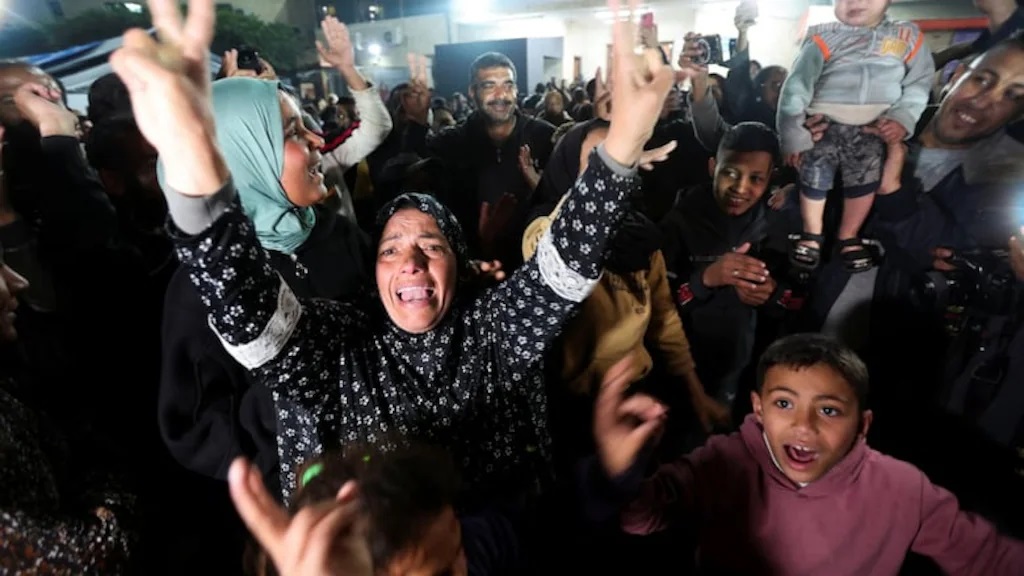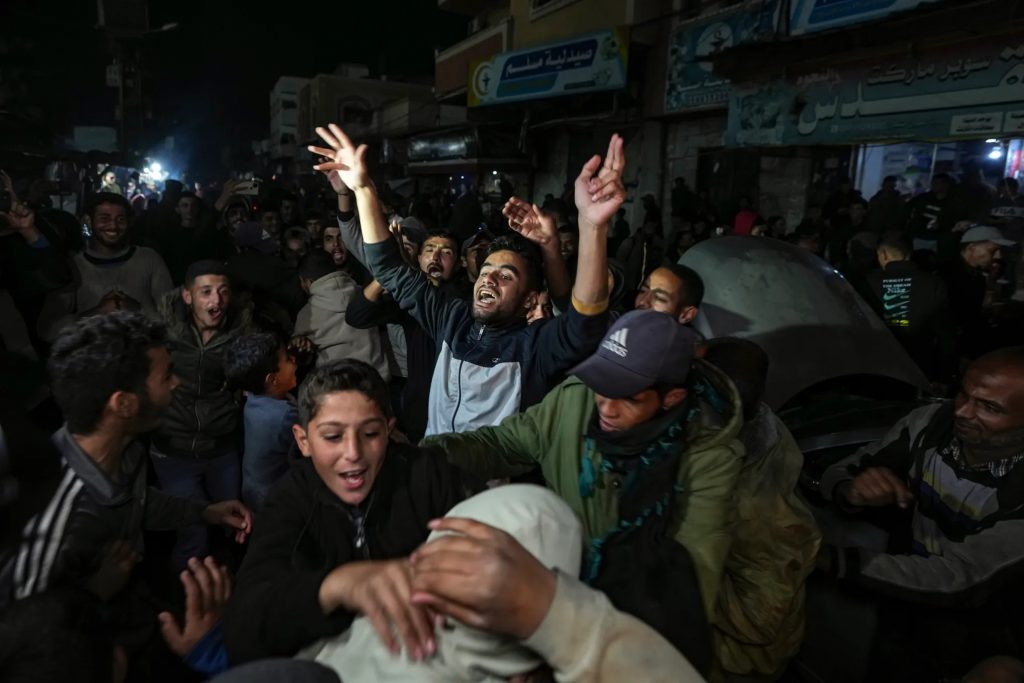Israel and Hamas agree to ceasefire in Gaza conflict

Israel and Hamas have reached an agreement on a ceasefire and the release of hostages in Gaza, marking a significant breakthrough after 15 months of relentless war.
The announcement was made by Qatar and the United States, key mediators in the negotiations.
Qatari Prime Minister Sheikh Mohammed bin Abdul Rahman Al Thani confirmed that the agreement is set to take effect on Sunday, pending approval from the Israeli cabinet.
He called for calm from both sides leading up to the implementation of the deal. “We hope this will be the last chapter of the war, and we urge all parties to honor the terms of this agreement,” he stated.
US President Joe Biden hailed the agreement as a vital step toward peace. “This will halt the fighting in Gaza, provide much-needed humanitarian assistance to Palestinian civilians, and reunite the hostages with their families,” he said.
Biden credited “dogged and painstaking American diplomacy” for the breakthrough and acknowledged the “extreme pressure Hamas has been under” and changes in regional dynamics.
Israeli Prime Minister Benjamin Netanyahu expressed cautious optimism, noting that the deal’s details were still being finalized. “I extend my gratitude to President Biden for his support in promoting this agreement,” Netanyahu said.
Hamas leader Khalil al-Hayya described the deal as a result of Palestinian “resilience,” emphasizing its significance as a milestone in the conflict.
However, he warned that the suffering inflicted on Gaza would not be forgotten or forgiven.
While the announcement sparked celebrations among families of hostages and Palestinians alike, the violence on the ground persisted.
The Hamas-run Civil Defence agency reported over 20 fatalities, including 12 people in a residential block in Gaza City, following Israeli airstrikes after the announcement. The Israeli military has not commented on these strikes.
Terms of the Agreement

The ceasefire’s first phase, lasting six weeks, will see the release of 33 hostages, including women, children, and the elderly, in exchange for Palestinian prisoners held in Israeli jails.
Displaced Palestinians will be allowed to begin returning to their homes, and Israeli forces will pull back from densely populated areas of Gaza. Additionally, hundreds of aid trucks will be granted entry daily to address the humanitarian crisis.
Negotiations for the second phase are set to commence on the 16th day of the ceasefire, focusing on the release of the remaining hostages, a full withdrawal of Israeli troops, and the establishment of “sustainable calm.”
The final stage will prioritize the reconstruction of Gaza, a process expected to take years, and the repatriation of the remains of any hostages still unaccounted for.
Qatar, the US, and Egypt will jointly oversee the implementation of the agreement to ensure all parties fulfill their obligations.
“There is a clear mechanism to negotiate the subsequent phases, and the full details will be published in the coming days,” Sheikh Mohammed assured.
Broader Context

The conflict escalated dramatically following the unprecedented Hamas cross-border attack on October 7, 2023, which resulted in approximately 1,200 deaths and the abduction of 251 hostages.
Since then, over 46,700 Palestinians have been killed, according to Gaza’s health ministry, with most of Gaza’s 2.3 million residents displaced. The territory faces severe shortages of food, fuel, medicine, and shelter due to restricted aid access.
Netanyahu reiterated his commitment to bringing all hostages home, stating that “any means necessary” would be employed to achieve this.
The Israeli cabinet is expected to approve the agreement, despite resistance from some far-right coalition members.
President Biden underscored the emotional toll of the conflict. “As we welcome this news, we remember all the families who lost loved ones on October 7 and in the war that followed.
It is long overdue for the fighting to stop and for efforts toward peace and security to begin,” he said.
Hamas chief negotiator Khalil al-Hayya characterized the agreement as a step toward rebuilding Gaza and alleviating Palestinian suffering. However, he added, “We will not forget, and we will not forgive the pain inflicted on our people.”
The deal, considered a turning point, remains a tentative step toward resolving one of the region’s most protracted and devastating conflicts.
Source-BBC





